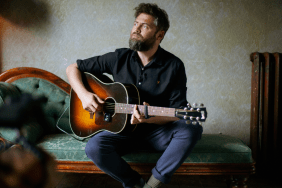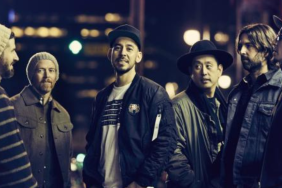Icehouse have long since transcended the charts and become a part of Australian culture. Their 1982 single Great Southern Land is so ingrained in this country’s consciousness that even an Australian with no interest in music would most likely recognise its spacial tones.
The single celebrated its 30th anniversary in 2012, along with the album it was lifted from, Primitive Man. During the same year Icehouse’s most commercially successful album, 1987’s Man of Colours, turned 25.
To celebrate the event Icehouse embarked on the Primitive Colours Tour, which saw mainstay Iva Davies and co. return to smaller venues, similar to the ones where the storied band first made a name for themselves.
Perhaps the most remarkable thing about Icehouse is that despite being an 80’s band, their music has not dated. Hit’s such as Electric Blues, Hey Little Girl and My Obsession continue to grab the attention of a younger generation, much to the surprise of Davies himself.
The day before Icehouse took the stage at the recently passed Trevor Festival on Phillip Island, Davies took the time to reflect on the career of Icehouse and why the music still stands up.
Music Feeds: How was the Primitive Colours Tour, did it exceed your expectations?
Iva Davies: Yes, because as a matter of fact we’re about to do a second leg of it – which we’ve called The Encore Tour – because we sold out to the extent that, especially in Victoria, we very much underestimated the demand.
We’re about to do five shows in Victoria to revisit that, and Queensland as well. So yes, we did rather underestimate the reaction (chuckles).
MF: Icehouse probably could have sold out a stadium tour. Was making Primitive Colours a pubs and clubs tour an important decision to tap back into the band’s roots and recapture certain energy?
ID: I think what we did last year was predominantly – in the early part of the year and also previous to that – outdoor, large festival type shows.
And they’re great fun, and certainly one of the [festivals] we did in the middle of the Primitive Colours Tour was in fact the closing ceremony of the Masters Games in Alice Springs, and that was strangely enough a huge night. I don’t actually have figures on the number of people there, but it looked to me around about 10,000.
[It] was a great night, but that’s something we’ve been doing for a while now, so the opportunity to get back into smaller venues was an interesting one, because the band has a different kind of energy. They’re both great fun to play, but a kind of outdoor festival type show is a different thing than a club or a theatre.
MF: What is it about those two albums, Primitive Man (1982) and Man of Colours (1987), that still holds up and resonates with people?
ID: Well, it’s not a question I can answer very easily, because it has been a surprise to me. And the other thing that is a surprise is the content of our audience, who are in their twenties – probably weren’t even born when those songs were released.
The only explanation I can have for that I sort of glean through my children, who are 19 and 16. And that’s that the world of technology has changed so much that we now have a generation of people who not only can access music historically, but have great interest in going back and finding out what happened in the 80s and the 90s and the 70s and the 60s. And so that’s been the surprise for me.
MF: You give a lot of credit to the modern day accessibility of music, but do you give yourself any credit for writing truly memorable songs that have stood the test of time?
ID: Well, thank you. Yes, I suppose so. I remember, for example – and I don’t know how much this may have influenced the way the songs have worn – that I was very mindful of the fact that a lot of what was going on around me (especially in the world of synthesizers, which opened up in the 80s) – that there [were] a great number of sounds that I thought to myself at the time, ‘This is going to date very badly, avoid at all costs.’ (chuckles)
I actually made quite conscious decisions along the way, especially when we were recording, to avoid some things that were highly fashionable then, and I’m very glad that I did. I think it’s possibly served to make the recordings weather better.
Having said that, you know, my son and I in fact are huge fans of Pink Floyd. Now of course those recordings were made in the 70s, and of course The Beatles and Rolling Stones – those recordings are made in very distant times in terms of technology, and still they sound fantastic. And so I think it’s possible to do that.
MF: Are you accepting of the fact that Icehouse were pioneers of electro and new wave music in Australia and serve as an influence for many bands and artists today?
ID: A peculiar thing seems to be happening in terms of the 80s, and I never thought I’d see the day, but the 80s seem to be an entirely influential period, and there have been quite a few young bands, strangely enough or interestingly enough. I was sent an interview quite recently by a couple of guys from the band, The Killers, who cited Icehouse as an influence.
And I found that extraordinary because my son had introduced me to The Killers when he was around about 14. I was really quite shocked to discover the music had travelled that far, and down another generation.
MF: Did listening back over Primitive Man and Man of Colours bring up any memories of a piece of equipment that you had a love/hate relationship with?
ID: Almost every album has associated with it a certain piece of technology. In fact, it became kind of a running joke in the band that before I wrote an album I’d have to have a new toy to play with. I can very clearly mark each of the collections of songs with a new gadget.
For example, Primitive Man … the first song I wrote for that was Great Southern Land. And I had a number of pieces of new technology, but primarily the one that was driving that album was a thing called a LinnDrum, which was the first drum machine that actually used digital samples of real drums.
In actual fact, so much so that Great Southern Land is actually a song that runs a 120 BPM, which is the default tempo of the LinnDrum, because at that stage I hadn’t even learnt how to speed it up and slow it down (chuckles).
MF: Primitive Man is the second album from Icehouse, but it originally started off as a solo project. What led to you deciding to turn it over to the band?
ID: Well the thing was that the collection of songs [for] Primitive Man was in some ways an accident, because bear in mind that the first album, the Flowers’ album, had really the first songs that I had written. But they had been written over a fairly long period of time and kind of introduced into our live set.
So I guess it was probably from two-and-half years of performing that I added those ten songs. Now that’s not a lot of songs, but they were the first songs that I had ever written, and then of course I had the prospect of, suddenly out of nowhere, producing a set of songs for a follow-up album to what was the highest selling debut album of any Australian band: the Flowers’ album.
And that was an incredibly daunting prospect for me. I really didn’t have a clue what I was doing. So that’s why I used that technology to sit down with and play with. And there wasn’t really a plan to do it on my own; it was just a way in which I thought I needed to work to write songs.
[I] ended up writing them, playing everything on the demo recordings myself, and then the suggestion was to go into the studio and re-record them on my own. But of course we needed to showcase those songs once they were recorded, and of course being a product of the studio, they actually required a different lineup.
For example, we immediately knew that we would need two keyboard players. There were just so many keyboard parts on those songs that it couldn’t be done with one set of hands, and similarly a second guitarist. So that’s where the band was expanded into a six-piece band, where it had previously been a four-piece band.
MF: Last year Great Southern Land turned 30 years old. When did it first dawn on you that Great Southern Land was more than a song and had become a part of Australian culture?
ID: It’s been a constant surprise to me, but I guess I knew something was going on with that song. I didn’t understand it myself and I never really have, but I certainly remember the way people reacted to it immediately.
I remember taking that original demo, which is very similar sounding to the final recording, to our little independent record company Regular Records and to our managers at the time, and both of those people immediately reacted to it in a way that I didn’t expect at all.
So as time has worn on over the years, I guess it’s constantly surprised me. What’s most surprising, I guess, is that it’s so recognised even after 30 years. And in actual fact it gives me great pleasure when, for example, I see the Australian cricket team enter an oval and they play Great Southern Land. I think it’s quite amazing; I’m still shocked, really (chuckles).
MF: When performing songs that have lived with you for so long, where does your mind go. For example, when playing Hey Little Girl, does it spark the memory of whoever inspired the song or perhaps does it take you back to how the song was written?
ID: I guess all of those things, but also a lot of these songs have a history associated with them too. So for example, if somebody mentions Hey Little Girl to me, I guess my immediate memory is of not only writing the song but of where it came from – which is a story in itself, because it was a bit of an afterthought.
In fact, I was actually instructed: we’d completed the whole album and the record company in America said, ‘Well, we haven’t got a single yet. You need to go back and write something’. And of course that was the last thing I was prepared for, but out of that process came Hey Little Girl.
But the other thing I associate with it too was that it was really the first thing that was a major success for us internationally. So it was a number one in Europe and we ended up on Top of the Pops in Britain and things like that. So a lot of those songs have very particular memories attached to them.
MF: Man of Colours spawned five top 30 songs, and Electric Blue went Number One, as did the album. Commercially speaking, it was the most successful Icehouse album, but for you, is that album Icehouse’s best work?
ID Look, I have an affection for all sorts of things, but certainly of course you’re quite right. I mean there was no doubt about the commercial success of Man of Colours. I think one of the interesting things about it was that the year that it won the ARIA for the highest selling album, it also won the ARIA for the best album.
And the best album category was voted for by the industry, and I think almost in the entire history of the ARIAs there hasn’t been an album that has won both the critics’ choice and the public’s choice.
And that to me is something of which I’m very proud, because it seems to me generally speaking that you’re either a favourite of the critics or you’re a high seller, but never both of them at the same time.
MF: You’ve said don’t feel Electric Blue is the song that best represents Icehouse. Which song would you say does best represent the band?
ID: Well, it’s very hard to go past Great Southern Land. Being the song with the history that it has, and I suppose if I had to make a choice of any of my children it would have to be that.
On the other hand, there are other songs that have a particular thing for me about them. I think one that is very outstanding for me is the song Man of Colours itself, mainly because it felt as if it had already existed in a parallel universe and it’d been channelled to be a complete song. It was so fast, the writing of that song, and it is in some sense autobiographical as well. So I have a particularly soft spot for that song, just because of the way it was kind of given to me.
MF: Man of Colours, Nothing Too Serious, My Obsession, Crazy, and Electric Blues are all off the same album. What were the circumstances that led to such a creative peak when you were writing Man of Colours?
ID: I think I’d been working in partnership with our lead guitarist Bob Kretschmer for some time. And so we started off writing the fourth album Measure for Measure together, but also at the same time we were writing my first ballet for the Sydney dance company, Boxes.
By the time we got to writing the next album [Man of Colours] Bob and I had a fairly professional kind of businesslike way of going about things. And I by then had sort of mastered the 24-track equipment that I was using in my little house in Sydney.
And we’d also developed very strong work ethic, and at that point I guess we were kind of a well-practiced professional team at producing songs. So I look back on that period as just really kind of succeeding out of practice. I suppose that was the thing, we’d worked together so much that when we sat down to write things together it was a case of, ‘Right, let’s start and we’ll put the phone back into the wall in a weeks time when I’ve got a full recording of this thing.’
MF: In theory there’s no reason why Icehouse couldn’t record another classic album, but when longstanding musical acts write new material it is often dismissed as being inferior to past work, without being based on individual merit.
Do you think writing a memorable song or album is as much about timing as it is creativity?
ID: I think there’s certainly an amount of… yes; I think certainly that does factor into it. Even artists like Bob Dylan for example. I heard a recent track of his only about a week ago and had exactly that thought myself: that his history is so much pinned to a certain time and a certain environment, especially with somebody like Bob Dylan, that you can’t disassociate him from the protest movement, and the Vietnam War and a whole lot of other things that were going on at the time. So I think it’s very difficult for people to transcend that.
Having said that, there’s no logical reason why a song that Bob Dylan might write tomorrow might not be as good as anything he’s done in the past. So it’s a tricky one. Fortunately, it’s one I don’t have to confront at the moment because I’m not in the writing mode (chuckles).
MF: You come across as such a humble bloke. What’s been the key to remaining modest despite all the success of Icehouse?
ID: Right at the very beginning I – like most musicians, like most writers, like most aspiring artists of any description – had benchmarks, had people whose work I admired enormously. And in a sense my process over the years has just been trying to achieve something, which I thought was as good as the best Bowie song, or the best Peter Gabriel song, or the best Beatles song, or the best Rolling Stones song, or the best Pink Floyd song.
Even after all this amount of time and the success we’ve had, I still have to remind myself that I probably have achieved that very little, if [I’ve] got anywhere near it. I saw a documentary a couple of nights ago on The Rolling Stones and it was just extraordinary, really, the kind of quality of what they did in a performance and what they did in the studio, and the songs.
So while there are those sorts of examples of people who have achieved great things with songwriting, it’s very easy to be humble (chuckles) because they’re very big boots to fill.












